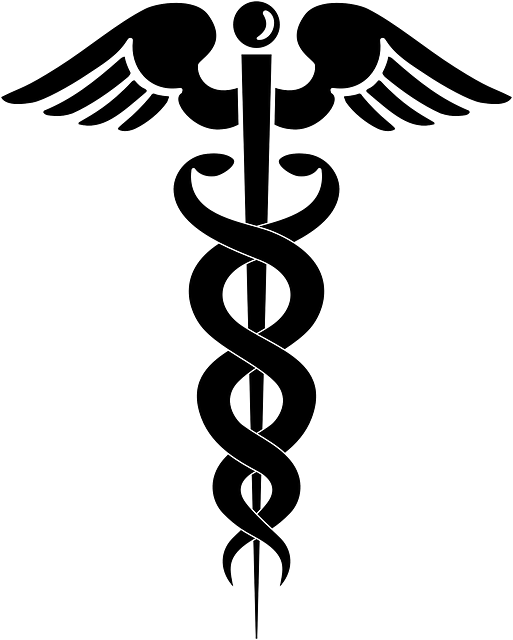Translation services for UK medical case studies must rigorously adhere to local healthcare guidelines and regulations, ensuring precise representation of complex medical content while maintaining cultural sensitivity. Key aspects include strict ethical standards (informed consent, data security), robust quality assurance processes combining automated tools with human review, and adherence to best practices including GDPR compliance and expert translator selection. These services play a vital role in facilitating effective communication, patient safety, and informed consent across diverse UK healthcare settings.
“Translation services play a pivotal role in bridging cultural and linguistic gaps within UK healthcare, especially when presenting international case studies. This article explores how professional translation enhances adherence to national guidelines, ensuring these complex medical narratives are accessible and accurate. We delve into the critical aspects of translating case studies, including ethical considerations, cultural adaptation, and quality assurance. By following best practices, healthcare professionals can effectively share global insights while meeting UK standards.”
- Understanding UK Healthcare Guidelines for Case Studies
- The Role of Translation Services in Medical Documentation
- Ensuring Accuracy and Consistency in Translation
- Adhering to Ethical Standards and Confidentiality
- Incorporating Cultural Sensitivity in Case Presentations
- Quality Assurance Processes for Case Study Translations
- Best Practices for Submitting Translated Case Studies
Understanding UK Healthcare Guidelines for Case Studies

The UK healthcare system operates under a set of strict guidelines and regulations designed to ensure patient safety, quality care, and ethical practices. These guidelines are integral to every aspect of medical practice, including case studies used for education, research, and quality improvement initiatives. When translating medical case studies for UK audiences, it’s paramount to have an in-depth understanding of these directives. This ensures that the translated content accurately represents the original intent while adhering to local standards and terminology.
Case study translation services for the UK market must consider guidelines from bodies like the National Institute for Health and Care Excellence (NICE), which provides national guidance on clinical and health service topics. Additionally, the General Medical Council (GMC) sets standards for medical practice and professional conduct. Translators must be adept at navigating these complex guidelines to produce case studies that are not only linguistically accurate but also compliant with UK healthcare regulations.
The Role of Translation Services in Medical Documentation

In the realm of UK healthcare, accurate and timely communication is paramount, especially when dealing with medical case studies. Translation services play a crucial role in ensuring that these complex documents are accessible and understandable for healthcare professionals and patients alike. When conducting case studies, especially those involving multilingual patients or research collaborations, translation becomes an indispensable tool.
For instance, Translation services for UK Medical Case Studies enable the seamless transfer of patient history, diagnosis, and treatment plans from one language to another, preserving critical nuances and ensuring cultural sensitivity. This is particularly important in the diverse healthcare landscape of the UK where professionals frequently encounter patients with varying linguistic backgrounds. Accurate translations facilitate effective communication, enhance patient safety, and promote informed consent, thereby directly aligning with the guidelines set forth by UK healthcare authorities for ethical and quality-driven medical practice.
Ensuring Accuracy and Consistency in Translation

In the realm of UK healthcare, accuracy and consistency in medical documentation are paramount. When it comes to case studies, which often require translation services for UK medical contexts, ensuring precise interpretations is non-negotiable. Professional translators play a crucial role in navigating the intricate language and terminology specific to healthcare, avoiding any potential errors that could impact patient care or research integrity.
Translation services for UK medical case studies must adhere to stringent standards, reflecting the latest UK healthcare guidelines. This involves not just understanding the source text but also grasping the nuances of medical jargon within the context of the case study. By employing experienced translators and implementing rigorous quality assurance processes, we guarantee that translated documents maintain their integrity, ensuring they meet the highest standards of accuracy and consistency.
Adhering to Ethical Standards and Confidentiality

When conducting and translating UK medical case studies, adhering to strict ethical standards is paramount. This involves obtaining informed consent from participants, ensuring confidentiality, and protecting sensitive healthcare data. Translation services for UK medical case studies must be cognizant of these guidelines to maintain trust and integrity. All translators are bound by professional codes of conduct that prevent them from sharing or using personal information without permission.
Confidentiality is a cornerstone of ethical research practice in the UK healthcare sector. This means translating case studies must be done with robust security measures in place, including encrypted data storage and secure communication channels. By upholding these standards, translation services contribute to a culture of integrity and respect for patient privacy within medical research.
Incorporating Cultural Sensitivity in Case Presentations

Incorporating cultural sensitivity is an integral part of effective case presentations, especially within the diverse healthcare landscape of the UK. With a growing multi-ethnic population, it’s essential for medical professionals and translators providing translation services for UK medical case studies to understand and appreciate the cultural nuances of patients they serve. This involves being mindful of language barriers, as well as respecting and adapting to different cultural beliefs, values, and practices that may impact healthcare decisions and communication.
Translation services play a pivotal role in bridging this gap by ensuring accurate and culturally sensitive documentation and communication. Professional translators not only translate medical terms but also grasp the context and cultural implications, enabling healthcare providers to present cases that are inclusive and respectful of individual patient backgrounds. This approach not only enhances patient care but also aligns with UK healthcare guidelines that emphasize equality, diversity, and cultural competence in healthcare delivery.
Quality Assurance Processes for Case Study Translations

Translation services for UK medical case studies require rigorous Quality Assurance (QA) processes to ensure accuracy and compliance with healthcare guidelines. These processes are essential to maintain the integrity of the original data while adapting it for a new linguistic context. Each translation undergoes multiple checks, including verification by subject matter experts and native speakers, to catch any discrepancies or cultural nuances that might affect interpretation.
The QA framework includes both technical and human-based methods. Automated tools screen for grammatical errors, consistency in terminology, and formatting issues. Following this initial screening, human translators and editors review the text, ensuring it accurately reflects the source document while adhering to UK healthcare guidelines. This iterative approach guarantees that the final translated case study is not only linguistically sound but also medically precise and culturally sensitive.
Best Practices for Submitting Translated Case Studies

When submitting translated case studies for healthcare settings in the UK, adherence to best practices is essential. One key consideration is ensuring accuracy and fidelity to the original content, as translation services for UK medical case studies must capture all critical information and nuances. This involves choosing qualified translators with expertise in medical terminology and a deep understanding of cultural context, especially when dealing with diverse patient populations.
Additionally, maintaining data security and privacy is paramount. Translations should comply with General Data Protection Regulation (GDPR) standards to protect sensitive patient information. It’s crucial to work with reputable translation service providers who have robust security measures in place and can guarantee the confidentiality of medical case studies. Proper formatting and referencing are also vital to ensure the translated documents align seamlessly with UK healthcare guidelines and professional standards.
Translation services play a pivotal role in ensuring that UK medical case studies adhere to healthcare guidelines, maintain ethical standards, and respect cultural sensitivity. By employing accurate and quality-assured translations, healthcare professionals can effectively communicate complex cases, fostering better collaboration and patient care. When submitting translated case studies, following best practices guarantees compliance with guidelines and maximizes the impact of these essential educational resources for the UK healthcare community.
